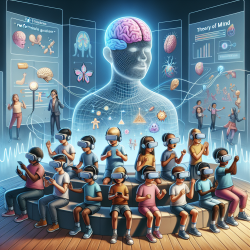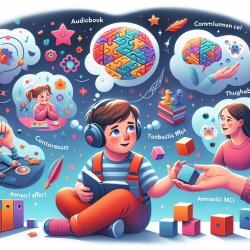Introduction
The COVID-19 pandemic has been a challenging time for everyone, but especially for early childhood educators (ECEs) who were classified as non-healthcare essential workers. A recent study titled "Physical Activity, Physical Well-Being, and Psychological Well-Being: Associations with Life Satisfaction during the COVID-19 Pandemic among Early Childhood Educators" sheds light on the critical role of physical activity (PA) and sedentary behavior (SB) in influencing the well-being and life satisfaction of ECEs.
The Study: Key Findings
The study surveyed 1,434 ECE teachers across 46 states in the United States during the early months of the pandemic. It explored two models: one where PA and SB mediated the association between well-being and life satisfaction, and another where well-being mediated the association between PA, SB, and life satisfaction. The findings revealed that the latter model was superior, indicating that well-being plays a crucial mediating role.
- 77% of respondents were overweight or obese.
- Only 39% met the recommended 150 minutes of moderate physical activity per week.
- Teachers experienced moderate stress and were approaching the threshold for depression.
- Despite challenges, they demonstrated moderate-to-high work commitment.
Implications for Practitioners
For practitioners, these findings highlight the importance of promoting physical activity and reducing sedentary behavior to enhance overall well-being and life satisfaction. Here are some actionable steps:
- Incorporate Physical Activity: Encourage teachers to engage in at least 150 minutes of moderate-intensity physical activity per week. This can be achieved through activities like walking, cycling, or even structured exercise programs.
- Reduce Sedentary Time: Implement strategies to break up long periods of sitting with short, active breaks. This could include standing meetings or brief stretching sessions.
- Focus on Well-Being: Address both physical and psychological aspects of well-being. This includes promoting mental health resources and stress management techniques.
Encouraging Further Research
While this study provides valuable insights, it also opens the door for further research. Future studies could explore the impact of different types of physical activity on well-being and life satisfaction, or investigate other factors that may influence these outcomes. Practitioners are encouraged to stay informed about emerging research and consider how these findings can be applied in their work.
Conclusion
The study underscores the significant role that physical activity and well-being play in enhancing life satisfaction among early childhood educators. By focusing on these areas, practitioners can help create better outcomes for teachers, which in turn, can positively impact the children they educate.
To read the original research paper, please follow this link: Physical Activity, Physical Well-Being, and Psychological Well-Being: Associations with Life Satisfaction during the COVID-19 Pandemic among Early Childhood Educators.










